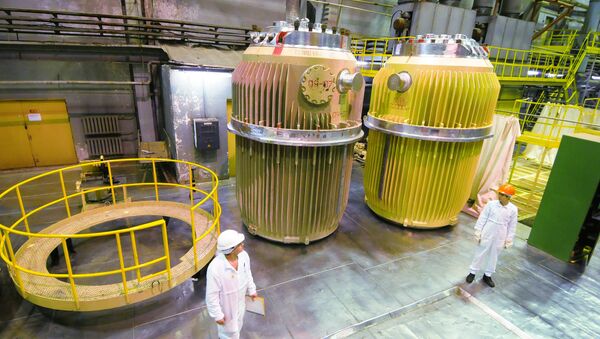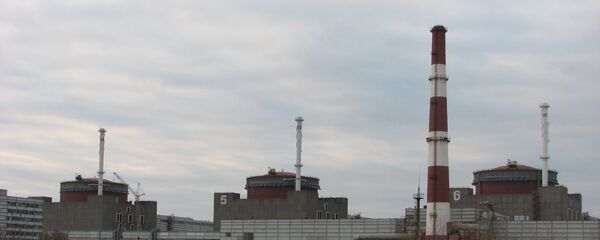Moreover, Russia's state nuclear agency Rosatom has fulfilled its state defense contract obligations for 2014.
The 2014 geopolitical situation has had a negative impact on the Russian nuclear industry. In Europe, Rosatom's partners have faced pressure forcing them to abandon joint projects.
However, some European countries showed that cooperation with Rosatom was in their long-term interests, and rose above political conflicts.
RETURNING TO IRAN
A landmark event for Rosatom was the Russian-Iranian agreement signed in November in Moscow, which envisages the possible construction of eight Russian-designed units, four of them for the Bushehr nuclear power plant.
Among the contracts signed, there were deals on further construction of the Hungarian Paks nuclear power plant, for a site Ruppur in Bangladesh, for the first Jordanian power plant, and the third and fourth units of the Kudankulam Indian power plant.
Moreover, India and Russia adopted a program of long-term nuclear energy cooperation, with the construction of 12 power plant units in India over the next 20 years currently under consideration.
A range of intergovernmental agreements inked in 2014 have paved the way for the possible construction of power stations in Kazakhstan, the South African Republic, Algeria, Brazil and Argentina.
Building a series of floating nuclear power plants in China became a new benchmark of Russian-Chinese nuclear cooperation. A respective memorandum of partnership between the countries was agreed in spring.
2014 FOREIGN ORDERS HIT RECORD HIGH
For the first time ever, the total value of Rosatom's foreign orders in 2014 exceeded $100 billion, with a peak of $100.3 billion. In contrast, Rosatom's orders in 2013 reached $74 billion. The number of 2014 orders received by the Russian nuclear agency rose from 20 to 27 for future energy units worldwide, including signed and guaranteed deals.
Finland became a good example of such a pragmatic approach.
In December, the Finnish parliament gave the green light to the Hanhikivi 1 project, where Rosatom has a 34-percent share.
Moreover, Finland became the first EU country to back a major joint investment project with Russia.
The Russian-Hungarian contract to finish the construction of the Paks power plant showed that Hungary was also prepared to put its national interests first.



